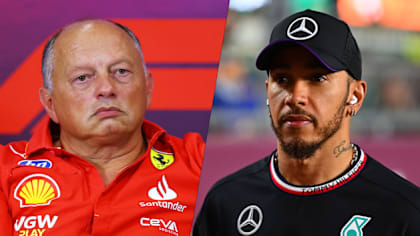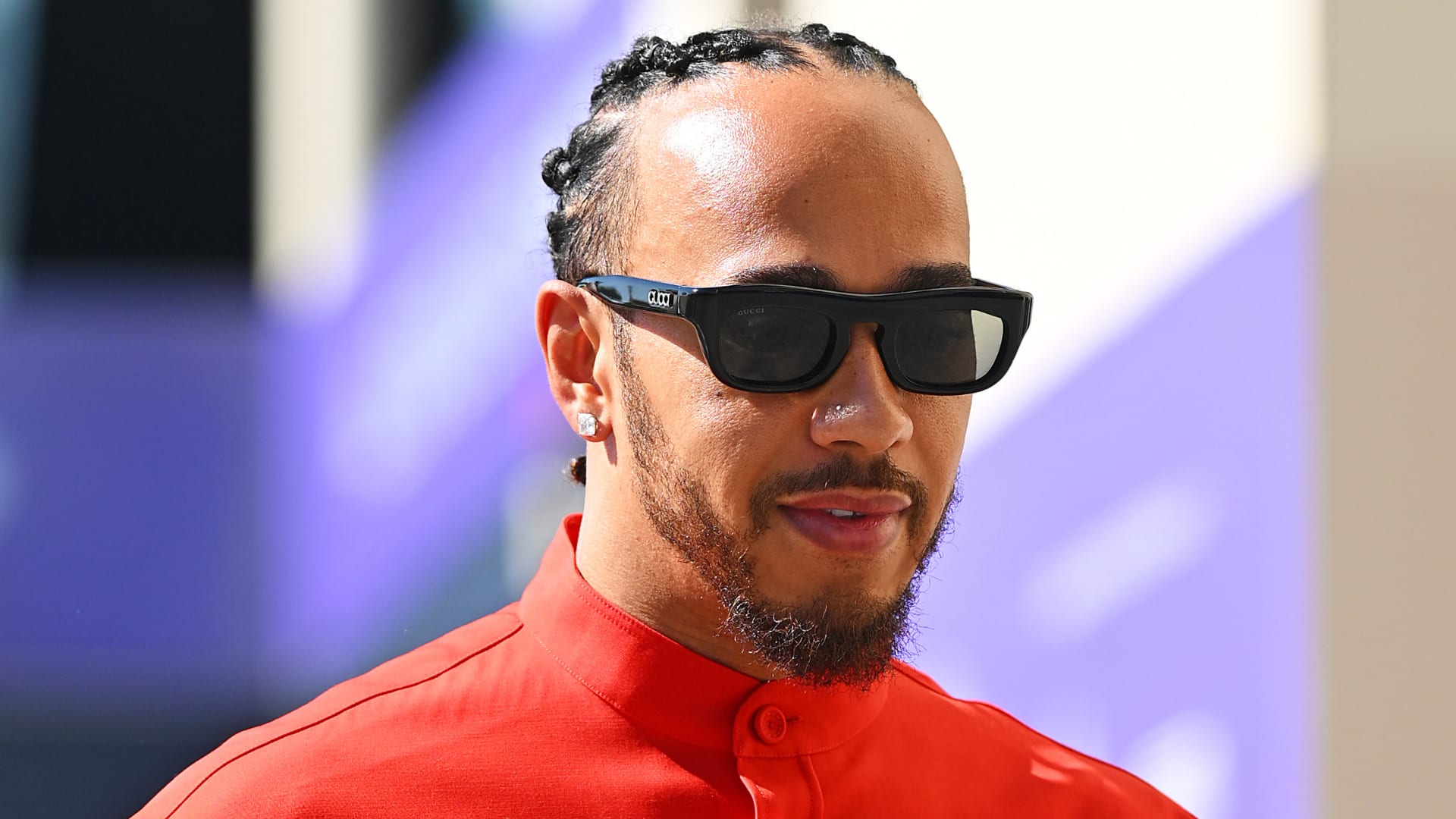In our series exploring the history of Grands Prix through selected iconic images, we turn our attention to Brazil - a country that has seen more than its fair share of exciting races over the years.
This look back through the archives takes in home success for Fittipaldi, Pace and Senna, an unexpected win for Mansell, a classic performance by Michael Schumacher, and arguably the most dramatic title decider of all time…
Fittipaldi claims fairy tale win in Brazil’s first Grand Prix, Interlagos, 1973
In 1972 Emerson Fittipaldi took his - and Brazil’s - first drivers’ crown, and the following year his adoring fans got the chance to see him race in the flesh when the South American country won the right to host its first world championship event. In a bid to give ‘Emmo’ the best possible chance of winning his home event, Lotus tested at Interlagos ahead of the race, and the black and gold 72Ds predictably dominated practice, albeit with Ronnie Peterson marginally faster than Fittipaldi. However, on race day it was Fittipaldi who came out on top, the Brazilian overcoming scorching temperatures on his way to a hugely popular victory. He’s pictured here crossing the line in front of jubilant Lotus boss Colin Chapman (who’s midway through his celebratory hat toss).
(© Sutton Images)
Jubilant Pace secures popular home win, Interlagos, 1975
After Emerson Fittipaldi had dominated the first two races in Brazil in ’73 and ’74, another native Paulista added his name to the winners’ role in 1975 - Carlos Pace, the man after whom the Interlagos circuit is now named. In truth, the Brabham driver’s victory owed much to fortune, or rather the misfortune of Jean-Pierre Jarier whose ultra-quick Shadow gave up the ghost some eight laps from the finish. But the manner of Pace’s one and only Grand Prix win (he’d be killed in a plane crash just two years later) didn’t make the podium celebrations any less emotional, not least because Fittipaldi (pictured to the left of a flag-wielding Pace) came home second for a Brazilian one-two. Fittipaldi’s McLaren team mate Jochen Mass (right) completed the rostrum.
(© LAT Photographic)
Piquet wins, collapses and is disqualified, Rio de Janeiro, 1982
Nelson Piquet gave his all to win his home Grand Prix in Rio in 1982 - that much was evident when the Brabham driver collapsed on the podium (pictured) as a result of heat exhaustion and the sheer energy required to drive the era’s brutal ground-effect machinery. But Piquet’s heroic efforts were to be in vain as both he and the man he’d beaten to victory, Williams Keke Rosberg (blue overalls, helping to support Piquet), were subsequently - and controversially - disqualified for having underweight cars. The problem was caused by the so-called ‘ballast water tanks’ on the two machines, ostensibly used to cool the brakes, that would gradually empty during the race and then be replenished at the end so as to pass the post-race weight check. Having protested the legality of such systems, Renault were rewarded when their driver Alain Prost (blue overalls, right of picture) inherited victory in Brazil. But that wouldn’t be the end of the matter - as a protest, Brabham, Williams and fellow Formula One Constructors Association (FOCA) teams McLaren and Lotus boycotted the San Marino Grand Prix a month later.
(© LAT Photographic)
Mansell takes shock victory on Ferrari debut, Rio de Janeiro, 1989
Nigel Mansell was famously so sure that his Ferrari would break down before the end of the 1989 season-opening Brazilian Grand Prix that he booked himself onto an early flight home from Rio. As it happened, the moustachioed Englishman needn’t have bought the ticket as not only did his John Barnard-penned 640 - complete with revolutionary semi-automatic gearbox - hold together, it was also quick enough to win the race. It wasn’t all plain sailing for Mansell, however, as midway through the race he was forced to cling on when two of the three bolts holding his steering wheel on fell out. But after a frantic final pit stop in which the wheel was changed, Mansell came storming back to see off the challenge of McLaren’s Alain Prost and Williams’ Riccardo Patrese (pictured behind the Ferrari in this picture) and become the first man to win on his Ferrari debut since Mario Andretti in 1971. “It’s the most laps the car has ever done in its history,” said a surprised Mansell after the race, referring to the 640’s dismal pre-season reliability after the race. “I’m just very happy that it was reliable when it counted.”
(© Sutton Images)
Senna finally claims heroic home victory, Interlagos, 1991
By 1991, Ayrton Senna was a global superstar; a double world champion with 26 Grand Prix wins to his name. But for one reason or another, the victory he craved the most - a home win - still eluded him. For a man as passionate about his homeland as Senna, this was a source of particular anguish, so you can imagine how he felt when, with victory in sight in the 1991 event at Interlagos, his gearbox began to fail him. But this time, through sheer bloody-mindedness, Senna would finally break his duck. Somehow, the Brazilian maestro was able to wrest his McLaren into sixth gear and manhandle it to victory, holding off the charge of Williams’ Riccardo Patrese in the process. On the podium after the race, an emotional Senna, his body shattered by his efforts, was barely able to lift the winner’s trophy above his head, hence McLaren team principal Ron Dennis's efforts to support him.
(© LAT Photographic)
Feisty Montoya outmuscles Schumacher, Interlagos, 2001
Michael Schumacher (left) was known for his uncompromising approach to wheel-to-wheel racing, but at the 2001 Brazilian Grand Prix the Ferrari star met his match in feisty Colombian rookie Juan Pablo Montoya (right). Clearly no respecter of reputations, the Williams driver - and former CART champion - muscled his way past the then three-time world champion with a spectacular move into the Senna S at the beginning of Lap 2, pushing Schumacher wide onto the grass and taking the lead. Montoya then raced away at the front and looked destined for victory before being clumsily taken out by backmarker Jos Verstappen. "It was going to be one of the best days of my life, but unluckily it became a bad one," a surprisingly philosophical Montoya said afterwards. "Better things will come." He was right: seven victories, including back-to-back wins at Interlagos in 2004/2005, followed over the next five and a half years.
(© Sutton Images)
Fiery Fisichella eventually declared winner of chaotic race, Interlagos, 2003
Few races have ended in as much confusion as the 2003 Brazilian Grand Prix, which was held in abysmal conditions at Interlagos. The problems began when Mark Webber shunted his Jaguar heavily on lap 54, setting in motion a sequence of events that ended with Renault’s Fernando Alonso cannoning into the debris, having an even bigger smash and bringing out the red flags. With conditions deteriorating - six drivers alone had gone off at Turn 3 - and more than 75 percent of the race distance complete, race organisers decided not to re-start the race. The question was who had won? In their initial estimations, the stewards handed victory to McLaren’s Kimi Raikkonen, with Giancarlo Fisichella - whose Jordan (pictured) had caught alight in parc ferme after the red flag - in second. However, upon re-examining the scoring data several days after the race, the stewards found that Fisichella had just started his 56th lap before the red flag signal was given. That meant that the race results - which were determined by the order two laps before the red flag - should not have been taken from the end of the 53rd lap (when Raikkonen was leading), but at the end of the 54th lap, at which point the Italian was in the lead. It was messy, but Fisichella was eventually awarded his first Grand Prix victory, the Jordan driver receiving his winner’s trophy from Raikkonen in a makeshift ceremony at Imola some three weeks later.
(© LAT Photographic)
Schumacher bows out after heroic recovery drive, Interlagos, 2006
Michael Schumacher won 72 races and five drivers’ titles for Ferrari, but arguably his greatest performance for the Scuderia came in his last race wearing red - and it didn’t even earn the German champion a podium finish. In a showing that demonstrated all of his skill, grit and determination, Schumacher stormed back from an early puncture which dropped him to 19th to finish fourth at the flag, boldly passing the likes of Kimi Raikkonen and Giancarlo Fisichella along the way. He’d failed in his unlikely bid to wrest the title away from Renault’s Fernando Alonso, but in what was originally planned to be his final F1 act, Schumacher entertained from start to finish.
(© Sutton Images)
Last-minute Hamilton snatches title from under Massa’s nose, Interlagos, 2008
It’ll go down as one of the most dramatic conclusions to a world championship season ever: Ferrari’s Felipe Massa crossed the line to win the season-ending race at Interlagos and in doing so claimed the drivers’ world title - or so it looked until several hundred metres down the road title rival Lewis Hamilton (silver McLaren) made this crucial pass on the Toyota of Timo Glock. Less than half a minute later, the Briton crossed the line in fifth place; thereby earning the four points he needed to secure his maiden drivers’ crown. Breathless stuff.
(© Formula One World Championship)
Vettel spins his way to third title, Interlagos, 2012
The 2012 season finale saw Sebastian Vettel and Fernando Alonso facing off for the world championship, but with a 13-point lead in the standings, the German held all the ace cards - or at least he did until he was inadvertently spun around by Williams’ Bruno Senna at Turn 4 on the opening lap. Facing the wrong way and with the field rushing towards him, Vettel’s chances of claiming a third successive title suddenly looked very shaky. But the Red Bull RB8 was a formidable machine, even when damaged, and once Vettel got going again he was able to charge through the field. The German eventually crossed the line in sixth, but with Alonso only able to finish second behind McLaren’s Jenson Button, it was enough to make Vettel the first triple champion since Michael Schumacher.
(© Sutton Images)
)



